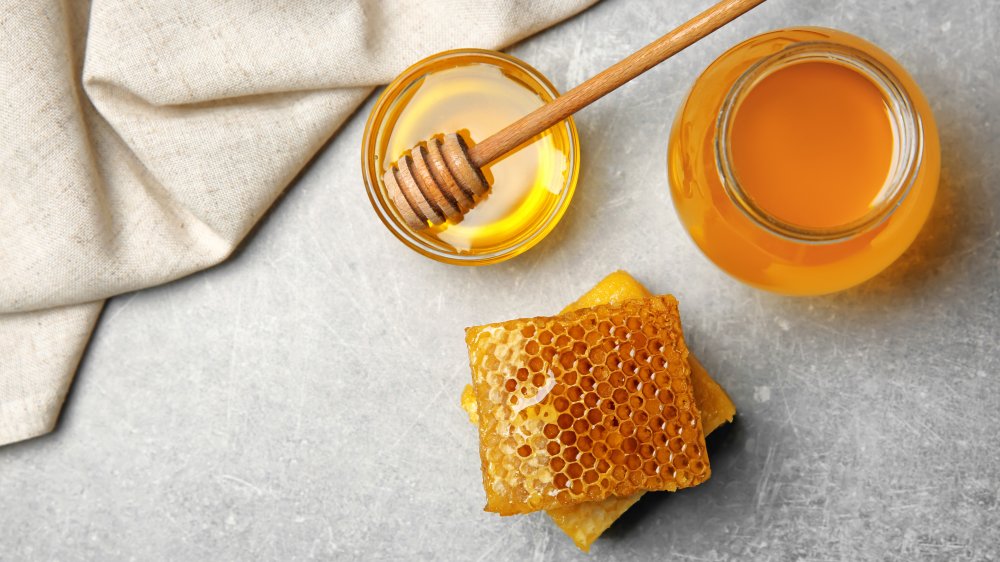Benefits Of Honey You'll Wish You Knew Sooner
Honey has been used for thousands of years as both a delicious food and a medicine. A cave painting found in the Arana Cave, near Valencia, Spain, shows a person bravely climbing a ladder to gather honey from a wild hive on a cliff face (via Planet Bee Foundation). The painting is thought to be 8,000 years old.
Affectionately known by beekeepers as "bee spit," honey is produced when bees drink nectar from flowering plants, and then regurgitate it and spit it out as honey. More technically, "Bees collect the dilute-sugary nectar of flora plants, produce an enzymatic activity after ingestion, regurgitate it into honey cells and evaporate a high percentage of the water out of it, producing a super-sweet viscous liquid known as honey," explains Dana Hunnes, a senior dietitian at Ronald Reagan UCLA Medical Center (via TIME).
In recent years, research has given much more support to the health benefits of honey. Nutritionally, honey is mostly sugar — 17 grams per tablespoon — and as such is classified as a sweetener along with the various types of sugar. In contrast with white sugar though, which offers no nutritional value, honey contains trace amounts of a wide range of vitamins and minerals, as well as, importantly, bioactive plant compounds and antioxidants. "These compounds are responsible for some of honey's potential health benefits and part of what distinguishes the sweetener from more traditional ones like sugar," says Jenny Friedman, a Philadelphia-based registered dietician.
Honey offers health benefits
Honey has long been used as a healing treatment for burns and various types of wounds and skin problems, including diabetic foot ulcers, due to its anti-bacterial, anti-viral and anti-inflammatory properties (via Healthline). Some studies have found honey to be more effective than cough medicine in reducing symptoms in children with upper respiratory infections. Just be sure not to give honey to infants under a year old, because of the risk of botulism.
Honey has also been found to reduce several risk factors for heart disease in people with diabetes. The antioxidants found in honey can help lower blood pressure, improve cholesterol levels, and combat the hardening of arteries. In a 2019 paper published in the journal Nutrients, researchers concluded that the many antioxidant and anti-inflammatory compounds found in honey are what are mainly responsible for the protective benefits (via Health).
How potentially beneficial the honey is depends in large part on where it comes from. Darker honeys, like buckwheat, contain more nutrients than lighter honey. Pure, straight-from-the-hive, unadulterated honey is better than honey that has other sweeteners, like cane sugar or corn syrup, blended into it.


